“The divide between ‘refugees welcome’ and ‘refugees not welcome’ seems to be a global phenomenon in which refugees are viewed as outsiders and the public education system is understood as primarily serving national citizens.” — Elizabeth Buckner
In a new global study of urban refugee education, researchers at Teachers College, La Universidad de Columbia han puesto de manifiesto una brecha entre la política y la práctica. “Incluso en países con fuertes políticas y leyes nacionales,”, Dice el co-autor Susan Garnett Russell, “Varios factores dan lugar a un déficit de aplicación incluyendo la falta de capacidad en las escuelas públicas, bajos niveles de capacidad de los funcionarios públicos, autonomía de los administradores locales y escolares, and discrimination and xenophobia by the host communities.”
According to the U.N. Alto Comisionado para los Refugiados (ACNUR), el desplazamiento forzoso de personas y familias ha crecido a un ritmo sin precedentes en las últimas dos décadas, llegando a más de 65 millones en 2016, una cifra no vista desde después de la Segunda Guerra Mundial. The study is based on a survey of 190 professionals working with UN agencies and national and international NGOs in 16 countries in the Middle East, North Africa, América Latina, Sub-Saharan Africa, y Asia, as well as on an in-depth study of refugees in Beirut, Nairobi, and Quito.
The Global Search for Education welcomes Mary Mendenhall, Susan Russell Garnett, and Elizabeth Bruckner, the authors of “Urban Refugee Education: Strengthening Policies and Practices for Access, Calidad, and Inclusion.”
“Participants in our Lebanon study expressed concerns about how restrictions on legal status, raids of informal tented settlements, and arrests of Syrians at checkpoints seriously undermined the MEHE’s efforts to accommodate Syrians in the public-school system.” — Mary Mendenhall
Ladies: This is an incredible report. Did any particular finding surprise you?
Susan: One surprising finding is that even within the same country, different ministries or government offices might have different policies that contradict each other. Por ejemplo, Ecuador’s 2008 Constitution promotes the idea of universal citizenship, which is supported by inclusive education policies and regulations for non-citizens. Sin embargo, Ecuador also has regressive migratory laws that contradict the rights ensured in the Constitution and international commitments.
Another surprising finding in Ecuador was the lack of the use of the “refugee” label among organizations working with refugees, at schools, and among refugees themselves. Rather than talk about “refugees,” NGOs and schools often talked about “Colombians or vulnerable populations,” but did not necessarily associate them with refugees. Por ejemplo, several schools we visited said that they did not have any “refugee” students, even though the Ministry of Education had recommended that we visit these schools to see refugee students. NGOs also mentioned the difficulty in locating “refugees” for their programs.
Elizabeth: What surprised me the most is how contentious refugee education policy is, despite the fact that almost everyone realizes the importance of educating refugees. The divide between “refugees welcome” and “refugees not welcome” seems to be a global phenomenon in which refugees are viewed as outsiders and the public education system is understood as primarily serving national citizens.
Sin embargo, in Lebanon we found that even when everyone agrees that educating refugees is important—for normative, security, and economic reasons—the best ways to go about doing this are not always clear. There are a lot of different actors involved who may have competing interests. We found that large international NGOs and humanitarian organizations feel that their expertise and experience was going unrecognized and unappreciated by government actors, and that government actors sometimes view NGOs as competitors who were undermining their efforts to get as many children as possible into public schools. We found a lot of concern among government actors about unregulated, possibly ideologically motivated, schools operating under the radar, while local communities found these schools more open and accessible because they were close and taught lessons in Arabic, rather than in English and French, which are used in public Lebanese schools.
We also found competition over foreign aid that was tied to the number of refugees served. We found many NGOs saying that in their experience, some refugees did not even want to attend their programs, and others saying that it was because of the way their programs were run. En general, we found a lot of tension over how to best serve refugees, given the huge needs. I felt that sometimes conversations were boiled down to one best practice—for example, current best practices stress integrating students into the public system and government ownership over the sector, but this seemed to undermine the “both/and” approach: that formal and informal programs were necessary, given the scale of the crisis, and that international, national and local actors all have their own advantages and expertise to offer.
“Countries that have signed onto international treaties such as the 1951 Refugee Convention or the Convention on the Rights of the Child have a legal obligation to provide education for children in their countries regardless of nationality or legal status, which should also be reflected in their national laws. Sin embargo, there are no real enforcement mechanisms for these international treaties…” — Susan Garnett Russell
You state in your recommendations that refugee programs need to be better coordinated to implement policies. Any examples of where this is working? What are the mechanisms needed to make this happen?
Mary: It’s not just the refugee programs, but the larger policy system in place in the government. Even when a government has relatively inclusive policies in place that uphold the right to education for refugees displaced in their country, the implementation of these policies may be frustrated by contradictory policies issued by the Ministry of Interior or other government offices. Por ejemplo, the Ministry of Education and Higher Education (MEHE) in Lebanon has expanded access to schooling by establishing double shifts in their government schools in order to absorb more Syrian refugees. Sin embargo, families are concerned about their children moving around the city and neighboring areas without some type of identification that signals to authorities (por ejemplo. at checkpoints and other locations) that they are allowed to be there and should be recognized as students. Participants in our Lebanon study expressed concerns about how restrictions on legal status, raids of informal tented settlements, and arrests of Syrians at checkpoints seriously undermined the MEHE’s efforts to accommodate Syrians in the public school system.
Elizabeth: Dicho esto, we have also seen some progress in Lebanon. Por ejemplo, in the summer of 2016, the Ministry of Social Affairs and Ministry of Education and Higher Education were jointly collaborating to develop an identification card for refugee students that could be used to help students pass through check points, to help them access schooling.
Mary: En Kenya, a valid effort has been made in recent years by the Ministry of Education and multiple international partners to develop the new Guidelines for Admissions of Non-Citizens to Institutions of Basic Education and Training in Kenya. They sought to expand the range of acceptable forms of documentation to help refugee learners access schools. To develop these guidelines, the various international partners created opportunities for representatives from the Ministry of Education to visit schools in the refugee camps as well as schools in Nairobi that have been accommodating significant numbers of refugee learners in their classrooms. This exercise proved effective not only in further clarifying who has access to school and what type of documentation is needed, but also by fostering renewed empathy for refugee families who are desperately trying to secure educational opportunities for their children amidst displacement. While many refugee students have permission through an exemption to leave the camp to pursue educational opportunities, when national security concerns arise, refugee students in Nairobi and other urban spaces might be forcibly returned to the camps, causing further disruptions in their educational pursuits.
“Los buenos ejemplos que encontramos eran aquellos individuos / orientada de justicia social orientadas a los derechos humanos (directores de las escuelas u otros maestros) que estaban tomando medidas en su propia pequeña manera de apoyar a los estudiantes refugiados en sus escuelas.”- Mary Mendenhall
Quién debe dirigir la coordinación? ¿Cómo afecta esto llegar a poner en su sitio?
Mary: Dado que estamos hablando de los refugiados urbanos acceso a las escuelas del gobierno en las ciudades y otros lugares (fuera de los campamentos o asentamientos informales de tiendas de campaña), it’s critical for the government to play a lead role in coordinating the provision of education. Sin embargo, most governments will need help leading this effort, as they might not have the capacity, either in the sheer number of personnel or overall preparedness of personnel. Por lo tanto, international and national partners may have a role to play here, a situation that will require them to play more of a supporting role. Coordination in humanitarian and development settings has always been a perennial challenge, but the effectiveness and reach of so many programs and policies are undoubtedly affected positively or negatively by this issue.
With regard to integration and inclusion of refugee students into national schools, how does this get legislated or mandated and how is it monitored?
Susan: This varies across countries. Countries that have signed onto international treaties such as the 1951 Refugee Convention or the Convention on the Rights of the Child have a legal obligation to provide education for children in their countries regardless of nationality or legal status, which should also be reflected in their national laws. Sin embargo, there are no real enforcement mechanisms for these international treaties and countries must incorporate their commitments into national law for these to be effective. Por ejemplo, in Ecuador, la 2008 Constitution provides for the right to education for all regardless of their nationality, which is in line with their international commitments. Lebanon is also a signatory to several international treaties such as the Convention on the Rights of the Child, which obligates the country to provide basic education for all children and is reinforced by the national Constitution. Sin embargo, en la práctica, the implementation of these obligations is often thwarted by security concerns, lack of capacity to implement, and resistance from local host populations.
Mary: Even when the legislative environment is inclusive and extends educational opportunities to refugee learners, as we see in the Kenyan context, national security threats can roll back any progress made by refugee students in gaining access to national schools, as fear and xenophobia trigger government crackdowns on relocating urban refugees back to the camps or their countries of origin under the guise of “voluntary repatriation.”
Who provides the training for teachers and school communities?
Mary: The teachers working in government schools tend to be national teachers who have already been trained through training institutes or university programs in the country. Sin embargo, the teachers who participated in our study all indicated that they needed additional training and support to be able to effectively accommodate refugee learners in their classrooms. They spoke about the support needed for learners’ psychosocial well-being, language support, classroom management and positive discipline, culturally responsive pedagogical training, host country curriculum support, and mitigating physical, sexual and gender-based violence in schools. International organizations can play here in collaborating with national teacher training institutes and other training pathways to further bolster the professional development of teachers of refugees that would inevitably benefit all learners.
You’ve recommended that governments as well as society at large should support implementation policies. What are the steps required and are there good role models to follow?
Mary: The main challenge we saw here was that successful policy implementation practices fall primarily on the “end user,” in this case the school principals who decided which refugee students would or would not gain access to school. The school principals’ abilities to implement the inclusive educational policies in place in Nairobi, Beirut and Quito were influenced by a number of factors—e.g., were school principals aware of the existing educational policies to begin with, did they interpret them in a way that included refugee learners, did they implement the policies free from discrimination or xenophobia toward any particular group of learners/refugees, were they influenced by the surrounding community to accept or reject refugee students in their schools? There are opportunities for governments, donors, international organizations and local community members to work more closely together to support both policy implementation and more welcoming schooling practices for refugees. The good examples we found were those human rights-oriented/social-justice oriented individuals (directores de las escuelas u otros maestros) who were taking steps in their own small way to support refugee students at their schools.
Para obtener más información: “Strengthening Policies and Practices for Access, Quality and Inclusion”
(Photos are courtesy of UNHCR)
C. M. Rubin with Mary Mendenhall, Susan Garnett Russell and Elizabeth Buckner
Únete a mí y reconocidos a nivel mundial los líderes de opinión, incluyendo a Sir Michael Barber (Reino Unido), DR. Michael Bloquear (EE.UU.), DR. Leon Botstein (EE.UU.), Profesor Clay Christensen (EE.UU.), DR. Linda Darling-Hammond (EE.UU.), DR. MadhavChavan (India), El profesor Michael Fullan (Canada), El profesor Howard Gardner (EE.UU.), El profesor Andy Hargreaves (EE.UU.), Profesor Yvonne Hellman (Países Bajos), Profesor Kristin Helstad (Noruega), Jean Hendrickson (EE.UU.), Profesor Rose Hipkins (Nueva Zelanda), Profesor Cornelia Hoogland (Canada), Honorable Jeff Johnson (Canada), Señora. Chantal Kaufmann (Bélgica), DR. EijaKauppinen (Finlandia), Secretario TapioKosunen Estado (Finlandia), Profesor Dominique Lafontaine (Bélgica), El profesor Hugh Lauder (Reino Unido), Señor Ken Macdonald (Reino Unido), Profesor Geoff Masters (Australia), Profesor Barry McGaw (Australia), Shiv Nadar (India), Profesor R. Natarajan (India), DR. PAK NG (Singapur), DR. Denise Papa (Estados Unidos), Sridhar Rajagopalan (India), DR. Diane Ravitch (EE.UU.), Richard Wilson Riley (EE.UU.), Sir Ken Robinson (Reino Unido), Profesor Pasi Sahlberg (Finlandia), El profesor Manabu Sato (Japón), Andreas Schleicher (PISA, OCDE), DR. Anthony Seldon (Reino Unido), DR. David Shaffer (EE.UU.), DR. Kirsten Immersive Are (Noruega), Canciller Stephen Spahn (EE.UU.), Yves Theze (LyceeFrancais EE.UU.), Profesor Charles Ungerleider (Canada), Profesor Tony Wagner (EE.UU.), Sir David Watson (Reino Unido), Profesor Dylan Wiliam (Reino Unido), DR. Marcos Wormald (Reino Unido), Profesor Theo Wubbels (Países Bajos), El profesor Michael Young (Reino Unido), y el profesor Zhang Minxuan (De China) a medida que exploran las cuestiones de educación cuadro grande que todas las naciones se enfrentan hoy.
La Búsqueda Global para la Educación Comunitaria Página
C. M. Rubin es el autor de dos ampliamente leído serie en línea por la que recibió un 2011 Premio Upton Sinclair, "La Búsqueda Global por la Educación" y "¿Cómo lo Leer?"Ella es también el autor de tres libros más vendidos, Incluido The Real Alice in Wonderland, es el editor de CMRubinWorld y es una Fundación Disruptor Fellow.
Siga C. M. Rubin en Twitter: www.twitter.com/@cmrubinworld

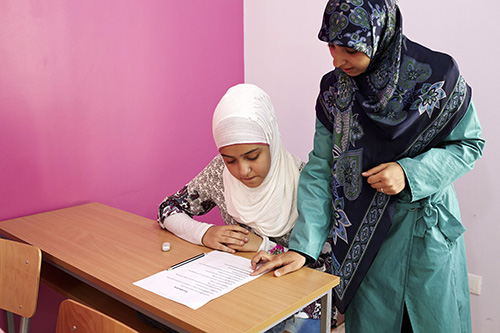
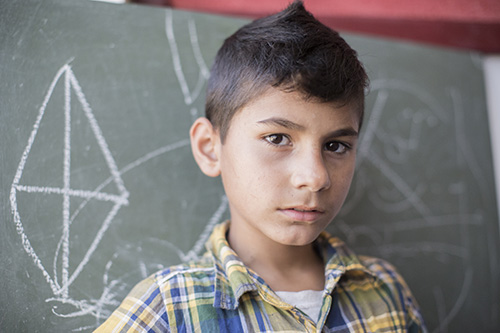
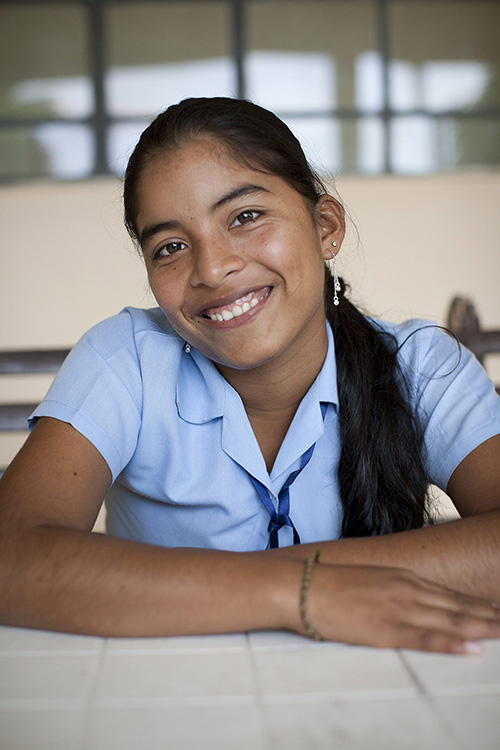
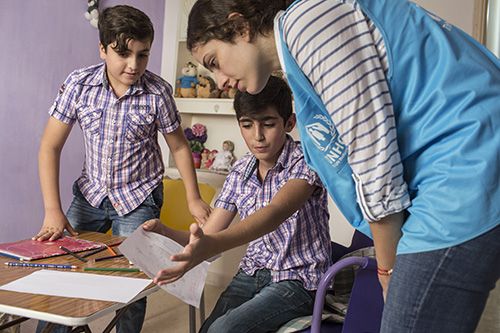



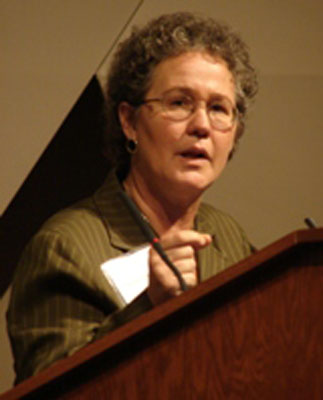

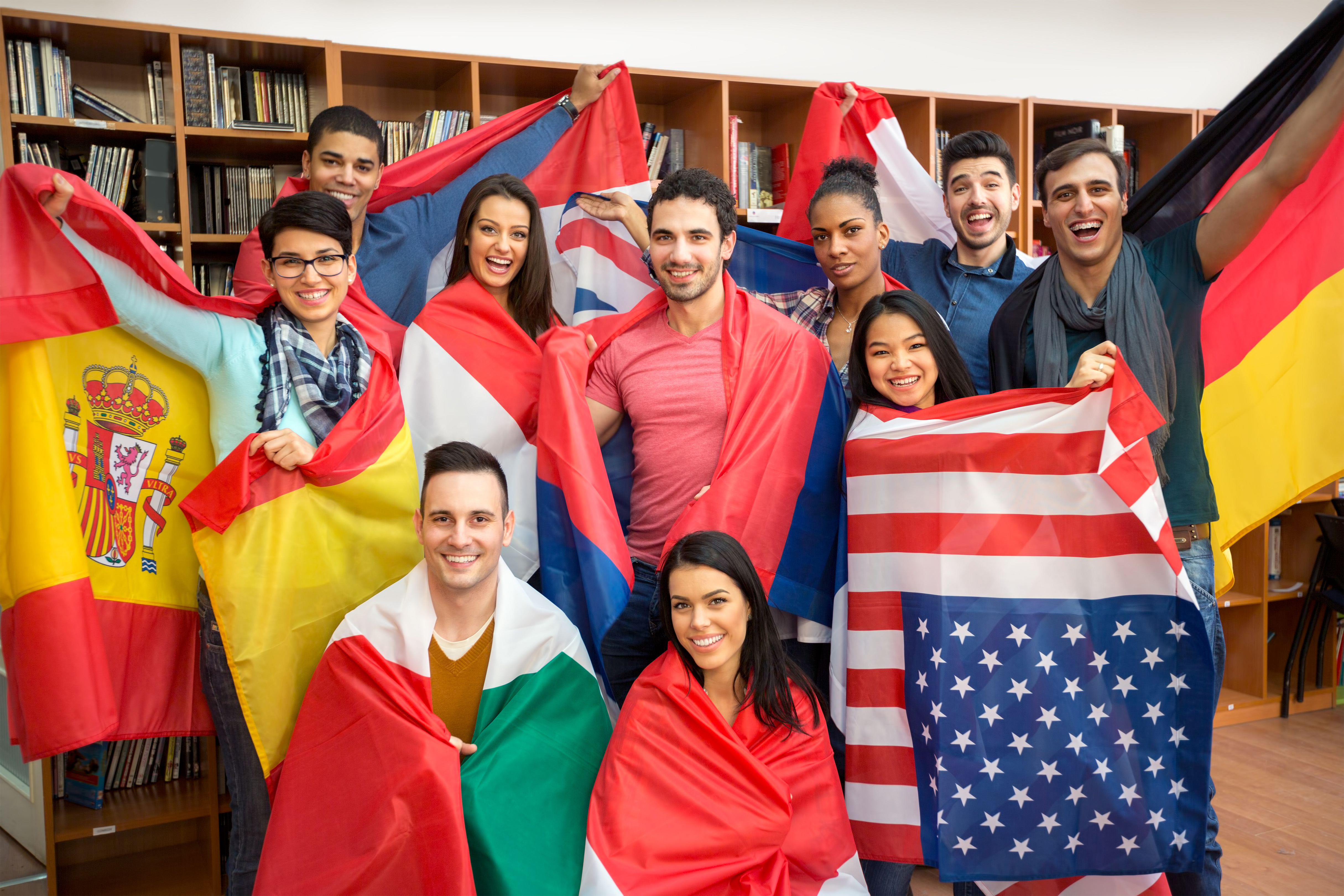
Comentarios recientes